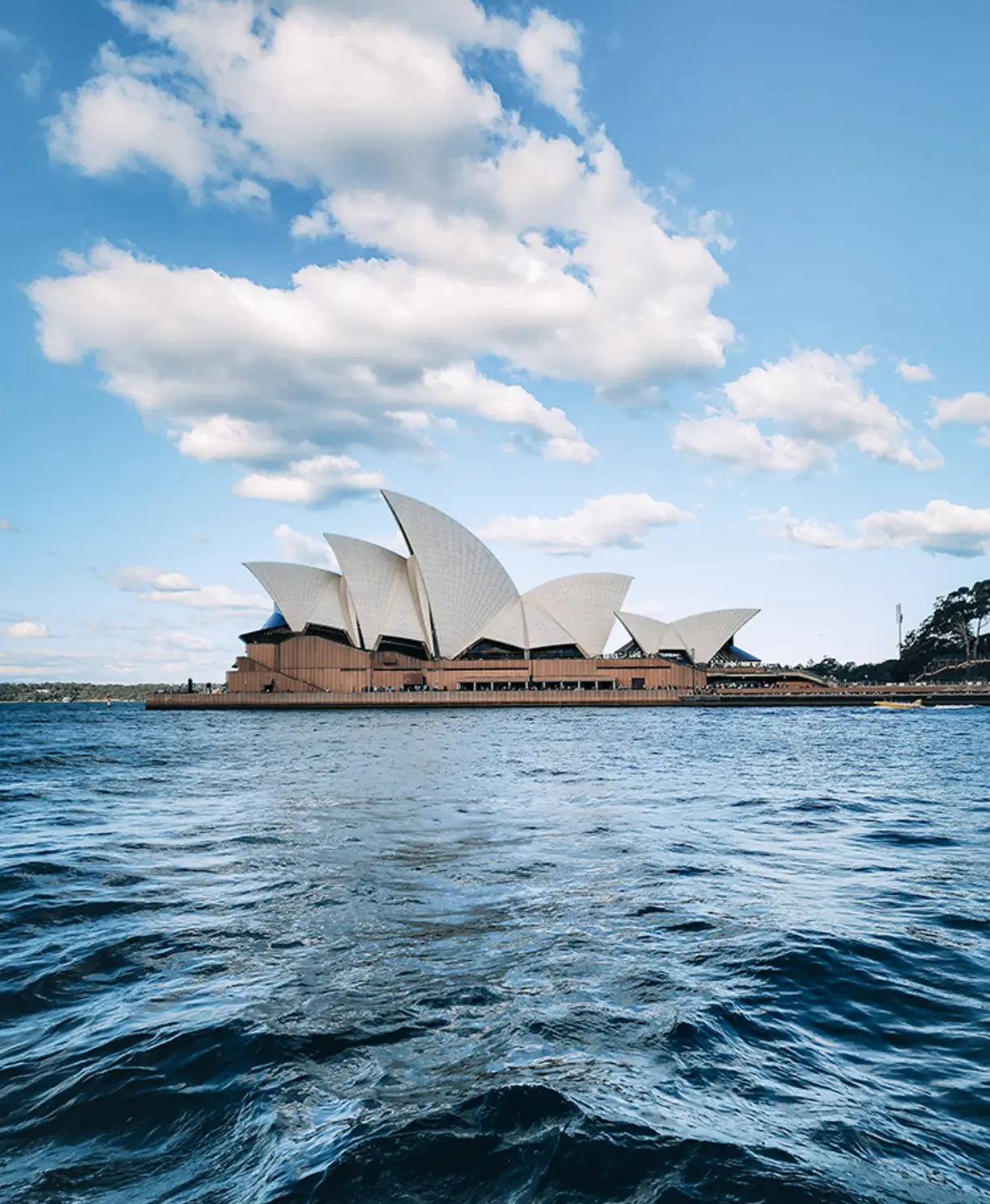Life In Australia

Where World-Class Learning Meets Vibrant Culture
From stunning landscapes to a rich cultural mix, friendly people make you feel at home. In Melbourne, dive into a buzzing arts and food scene, while Sydney shines with its famous beaches and landmarks. Easy public transport, eco-friendly living, and vibrant community events make life here exciting. With top-notch education and endless opportunities, it’s no wonder students from around the world choose Australia!

Living in Sydney
Explore the city’s iconic landmarks, picturesque beaches, and lively cultural scene. Experience the unique fusion of heritage and contemporary that Sydney has to offer.

Living in Melbourne
Experience the cultural hot spots, and world-class dining scene that make Melbourne a true gem. Immerse in the diverse and artistic atmosphere that sets this city apart.
Cost of Living
Access details about your financial obligations, tools to help your planning and useful links to further information.
If this is your first time away living from home, planning for everyday expenses can be daunting. It is important that you maintain a realistic budget by understanding the costs that you are likely to face as a student in Sydney. To manage your income and expenditure, a budgeting tool can be used.
If you are an international student, you must comply with the financial obligations set by the Department of Home Affairs. As a single student, you must be able to show that you have money to cover your living costs of at least AUD$29,710 per year. This will equate to approximately AUD$2,476 per month. The actual cost will vary depending on your needs and choice of lifestyle.
Below is a list of major expenses that you will need to include in your weekly budgeting:
- Accommodation
- Utilities and communication (electricity & gas bills, mobile phones and internet bills)
- Food and groceries
- Travel and transport
- Entertainment and socialising
- Academic needs (eg. study materials, stationery, printing & photocopying)
- Insurance
- Childcare and schooling costs (if you have school-aged dependants)
Useful links:
- The Insider Guides Cost of Living Calculator provides a useful tool to help you with estimating your cost of living based on your desired lifestyle (accommodation arrangements, transportation options, entertainment activities etc.)
- A budgeting tool by the Australian Securities & Investments Commission (ASIC) enables you to work out where your money is going, create your own items and change the currency (if applicable).
Working in Australia
Learn more about your working rights during and after your course, how to set up your Tax File Number and and more.
Tax File Number (Tfn)
Before commencing work in Australia, you will need to obtain a Tax File Number (TFN). You can do this online through the Australian Taxation Office (ATO) website.
If you have any tax taken from your earnings, you will need to lodge a tax return at the end of the financial year using your TFN. The ATO does not use the same rules as the Department of Home Affairs. To find out your residency status for tax purposes, click here.
Work And Your Visa
If you are on a student visa, you can work up to 40 hours per fortnight (14 days) in trimesters with a full-time study load. During trimester breaks and holidays, there are no restrictions on your working hours. If you are enrolled in units for the summer trimester, although it is optional, you will only be able to work up to 40 hours per fortnight.
Your Rights At Work
There is a set of basic working rights, including minimum pay and conditions that protects everyone who works in Australia, including international students. To find out more about your rights at work, view commonly asked questions and download the fact sheet from the Fair Work Ombudsman website.
Working After You Have Finished Your Degree
When you have completed your studies, you may want to explore and apply for graduate positions offered by a variety of organisations. If you are an international student, there is a Temporary Graduate Visa (subclass 485) which allows graduates to stay and work in Australia temporarily upon completion of their studies. For further information, visit the Department of Home Affairs’s Post Study work arrangements website.
Useful Links provided by the Fair Work Ombudsman (FWO):
Jessica’s story (based on a real FWO investigation) – this story includes details of an international student’s experience at work and receiving help from the FWO.
Top tools and resources most relevant to international students.